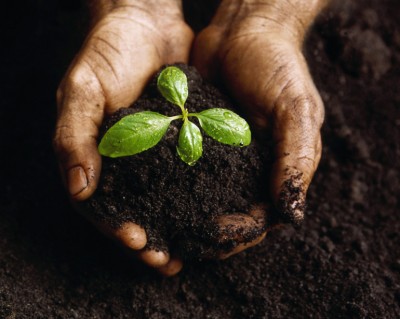
Image source: newx.com
When I was young, we used to sing the words to Woody Guthrie’s song, “This land is your land.” There was one part of the song in which we sang, “This land was made for you and me.” And that is true – although not in the sense that the song implied. God created the world for mankind to inhabit, while multiplying in number and subduing creation (Gen. 1:28).
So how do we respond when someone claims they can do anything to the land? Or how about when someone ascribes personhood to the land and nature (e.g., “Mother Nature”)?
Extreme views
“It is my land and I can do whatever I want with it,” some on the far Right may say. Based on this view of land ownership, one could pour motor oil down the toilet or in a creek on one’s property without fear or repercussions, or even dump old chemicals or dead livestock in the nearby lake. However, this position is unbiblical for two reasons: 1) It does not take into account the fallout of one’s actions on those around him or her (that creek deposits into a nearby river enjoyed by thousands), and; 2) It fails to take into account the fact that God is the one who owns everything.
Others believe that the land itself is sacred and should not be altered at all. This philosophy is often referred to as environmentalism. Extreme forms of environmentalism even go so far as to ascribe personality to nature, or even ascribe deity to nature (pantheism). Those who hold to these positions would argue that nature is inherently special and should be preserved and protected. There is merit on the surface of this argument, as God did give human beings the responsibility of “subduing” (managing) the earth; however, nowhere in Scripture is nature given spiritual qualities that would make it more significant than (or even on par with) humans and their responsibility to manage it.
A biblical, balanced view
Is there a middle ground between these two extremes? Yes. God is ultimately the one who owns the land, because He is the one who created the land and He is the one who grants the land to us, the tenants.
Awaken Your Child’s Love of Learning, History And Adventure With The REAL Story of William Wallace!
However, there is a principal that applies to the issue of land ownership: stewardship. God promised the Israelites that they would prosper in the land if they were faithful with what He put before them. However, He made it clear that if they did not follow His commands, He would uproot them. Jesus echoed this truth when He said that whoever is faithful in little things is faithful in greater things (Luke 16:10). The overarching truth is that God gives us responsibilities and we are to steward that which is His.
Psalm 6:6-8 reads: “You have given [people] dominion over the works of your hands; you have put all things under his feet, all sheep and oxen, and also the beasts of the field, the birds of the heavens, and the fish of the sea, whatever passes along the paths of the seas.
Jesus told a parable about three servants who were entrusted with money from their master (Matt. 25:14-30). The servants who were faithful were given more and the master said, “Well done, good and faithful servant. You have been faithful over a little; I will set you over much. Enter into the joy of your master.” However, the servant who was unfaithful was told, “You wicked and slothful servant! … Cast the worthless servant into the outer darkness. In that place there will be weeping and gnashing of teeth.’” The point is that God is pleased when we use what He gives us in a way that honors Him.
God created the earth and entrusted us to care for it, but He also told us to multiply, which inherently means we would be using more and more of the earth’s resources. Therefore, we are to use the earth’s resources in a way that is both responsible and faithful to God’s design while respecting that which has been entrusted to us and belongs to God. We cannot do whatever we want to with the land — even if we own a title. We should not ascribe characteristics to nature that are not deserved (deity, personality, etc.) and that belong to God, but we must not treat the land as if it is insignificant; it is our Master’s — and we are merely stewards.
Do you agree or disagree? Share your thoughts in the section below:
 Off The Grid News Better Ideas For Off The Grid Living
Off The Grid News Better Ideas For Off The Grid Living




